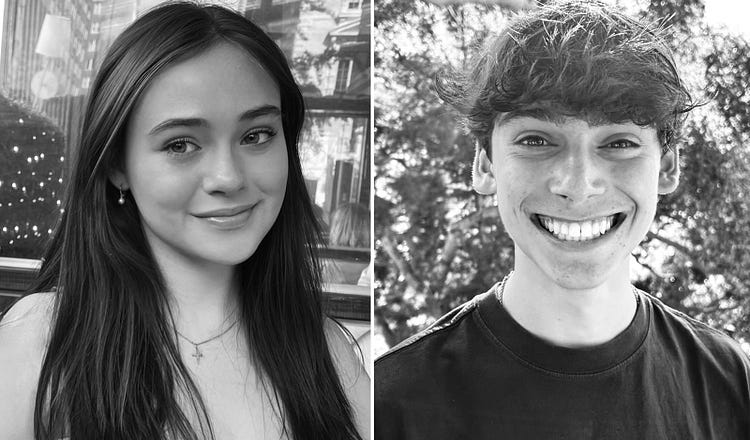Why I Traded My Smartphone for an Ax

Isabel Hogben (left) and Caleb Silverberg are the two runners-up in our contest.
Plus: what to do about porn. Meet the two runners-up in our high school essay contest.
107
American teenagers aren’t having a good time. They aren’t having sex. They aren’t driving. They are depressed, anxious, and lonely. (Whether social media is the cause or the catalyst is a subject of ongoing and intense debate.)
We’ve done a lot of reporting on Gen Z. Earlier this summer, we decided to ask them to report on themselves.
More than 400 teena…
Continue Reading The Free Press
To support our journalism, and unlock all of our investigative stories and provocative commentary about the world as it actually is, subscribe below.
$8.33/month
Billed as $100 yearly
$10/month
Billed as $10 monthly
Already have an account?
Sign In


